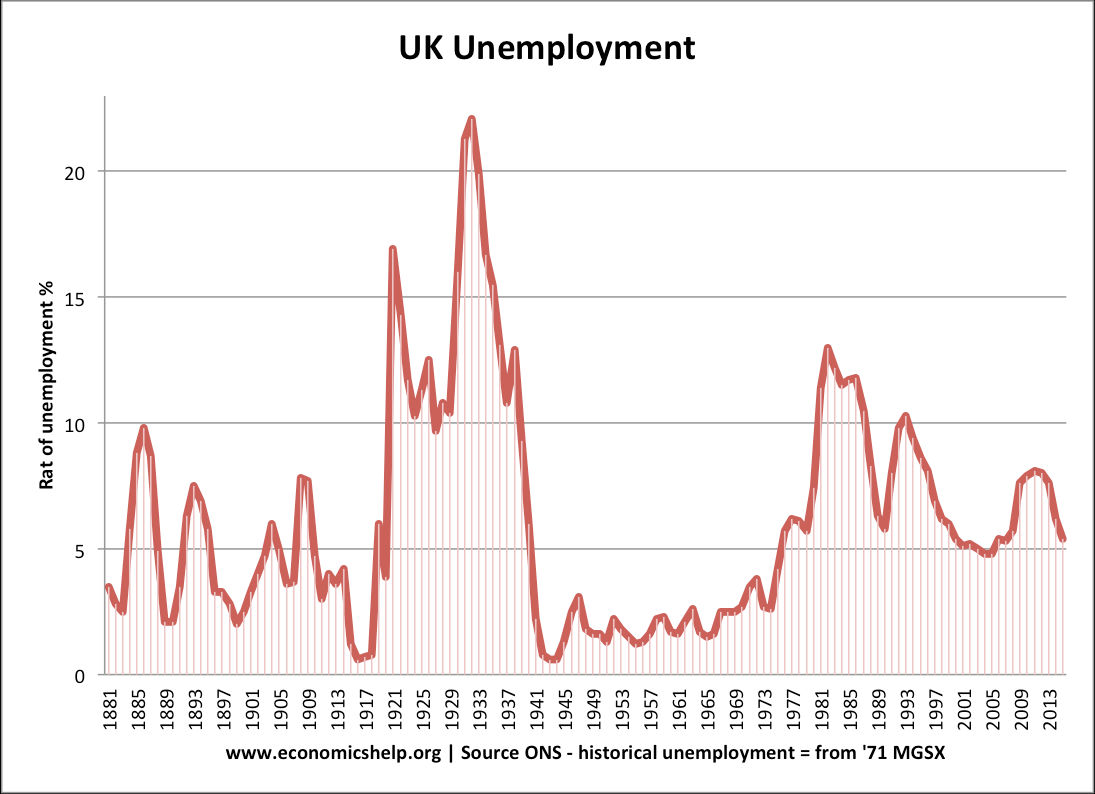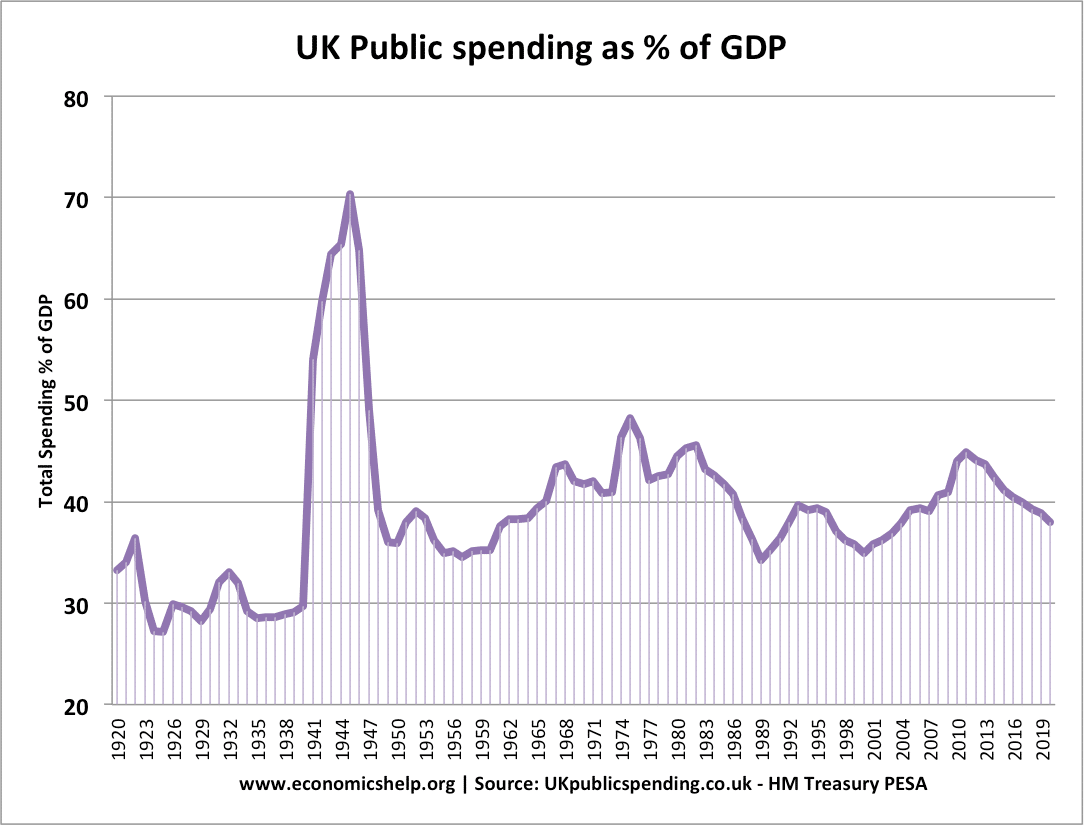INTERWAR ERA II
GREAT DEPRESSION
In 1929 the Great Depression started in New York and it quickly affected the rest of the world, including United Kingdom. It is consider the most important economic depression in the history of UK. In that era the Conservative Party dominated.
Main consequences:
-- Britain's world trade fell by half (1929–33)
-- Production of heavy industry fell by a third.
-- Unemployment reached 3.5 million. In some industries it reached a 70%.

Measures of the government:
-- Issuing of a new budget with reductions in public spending and wages.
-- Increase taxes from 22.5% to 25%.
(These measures were deflationary and merely reduced purchasing power in the economy, worsening the situation, and by the end of 1931 unemployment had reached nearly 3 million)
-- Abandonment of the Gold Standard.
-- Introduction of tariffs in imports of 10%

Recovery.
-- UK exports were much more competitive thanks oth the withdrawal of the Gold Standard.
-- Reduction of national debt, which it reached 180% of GDP; but with the cut in the interest rate a boom in construction appear and this added to a higher consumption within UK.
-- Unemployment fell to 1.5 million by 1937.
INTERESTING LIKS:
Video about the Great Depression in UK and it effects: Video link
In 1929 the Great Depression started in New York and it quickly affected the rest of the world, including United Kingdom. It is consider the most important economic depression in the history of UK. In that era the Conservative Party dominated.
Main consequences:
-- Britain's world trade fell by half (1929–33)
-- Production of heavy industry fell by a third.
-- Unemployment reached 3.5 million. In some industries it reached a 70%.
Measures of the government:
-- Issuing of a new budget with reductions in public spending and wages.
-- Increase taxes from 22.5% to 25%.
(These measures were deflationary and merely reduced purchasing power in the economy, worsening the situation, and by the end of 1931 unemployment had reached nearly 3 million)
-- Abandonment of the Gold Standard.
-- Introduction of tariffs in imports of 10%

Recovery.
-- UK exports were much more competitive thanks oth the withdrawal of the Gold Standard.
-- Reduction of national debt, which it reached 180% of GDP; but with the cut in the interest rate a boom in construction appear and this added to a higher consumption within UK.
-- Unemployment fell to 1.5 million by 1937.
INTERESTING LIKS:
Video about the Great Depression in UK and it effects: Video link
Comentarios
Publicar un comentario